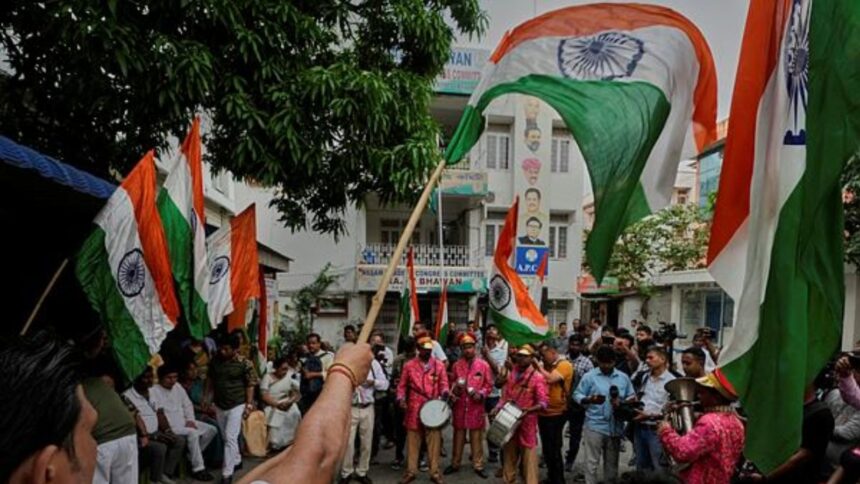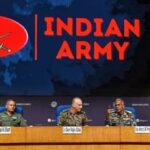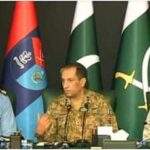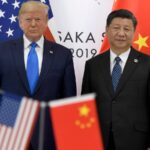A day after India and Pakistan announced a ceasefire, Leaders of the Opposition in both Houses on Sunday wrote to Prime Minister Narendra Modi urging him to call a special session of Parliament to discuss the prevailing situation, Operation Sindoor and the Pahalgam terror attack.
In his letter, LoP in the Lok Sabha said he “reiterates the unanimous request of the Opposition to convene a special session of Parliament immediately. “It is crucial for the people and their representatives to discuss the Pahalgam terror attack, Operation Sindoor and today’s ceasefire, first announced by US President Trump. This will also be an opportunity to demonstrate our collective resolve to meet the challenges ahead,” Gandhi said in the letter. LoP in the , in a separate letter, said he supported Gandhi’s request.
On April 28, the two leaders had written to Modi demanding a special session in the wake of the Pahalgam attack.
“The Opposition believes that a special session of both Houses of Parliament should be convened, where the representatives of the people can show their unity and determination,” Gandhi had said in his earlier letter.
Following the Pahalgam attack, the Congress officially extended “full support” to the government in its decisions, but sources within the party said that it will now start questioning the government on the situation, especially on the alleged mediation between India and Pakistan by US President .
“The government has always maintained that no third party is involved in negotiations between India and Pakistan. How did Trump announce the ceasefire then? We will raise these questions in the coming days,” a senior party leader said.
Echoing the LoPs’ demand for a special session of Parliament, the party’s communication in-charge Jairam Ramesh also urged the PM to chair an all-party meeting. “The Congress reiterates its demand for an all- party meet chaired by the PM and for a special session of Parliament for a full discussion on Pahalgam, Operation Sindoor, and the ceasefire announcements made from Washington first and then subsequently by the Governments of India and Pakistan,” he said.
Claiming that US Secretary of State Marco Rubio’s mention of a “neutral site” for an India-Pakistan dialogue raises “many questions”, Ramesh asked, “Have we abandoned the Simla Agreement? Have we opened the doors to third-party mediation?”
Sources in the government have maintained that the ceasefire was worked out “directly between the two countries”. “If diplomatic channels between India and Pakistan are being reopened, what commitments have we sought and got?” Ramesh asked.
Since Saturday, the Congress has been drawing comparisons with the 1971 India-Pakistan war, with Ramesh saying the party “believes it is but natural for the country to recall former PM Indira Gandhi for her extraordinarily courageous and resolute leadership in 1971”. “…The truth is that the circumstances of 1971 are not the circumstances of 2025. There are differences… This was not a war that we intend to continue. We just wanted to teach terrorists a lesson, and that lesson has been taught. I’m sure the government will continue trying to identify and track the specific individuals who did the horrors of Pahalgam,” he said.
Meanwhile, (RJD) leader Tejaswi Yadav also urged the government to call for a special session. “The PM is requested to call a special session of Parliament and give date-wise information starting from Pahalgam attack to the ceasefire,” he said.
During his time in Uttar Pradesh, he covered politics, crime, health, and human rights among other issues. He did extensive ground reports and covered the protests against the new citizenship law during which many were killed in the state.
During the Covid pandemic, he did extensive ground reporting on the migration of workers from the metropolitan cities to villages in Uttar Pradesh. He has also covered some landmark litigations, including the Babri Masjid-Ram temple case and the ongoing Gyanvapi-Kashi Vishwanath temple dispute.
Prior to that, he worked on The Indian Express national desk for three years where he was a copy editor.
Rehman studied at La Martiniere, Lucknow and then went on to do a bachelor’s degree in History from Ramjas College, Delhi University. He also has a Masters degree from the AJK Mass Communication Research Centre, Jamia Millia Islamia.








